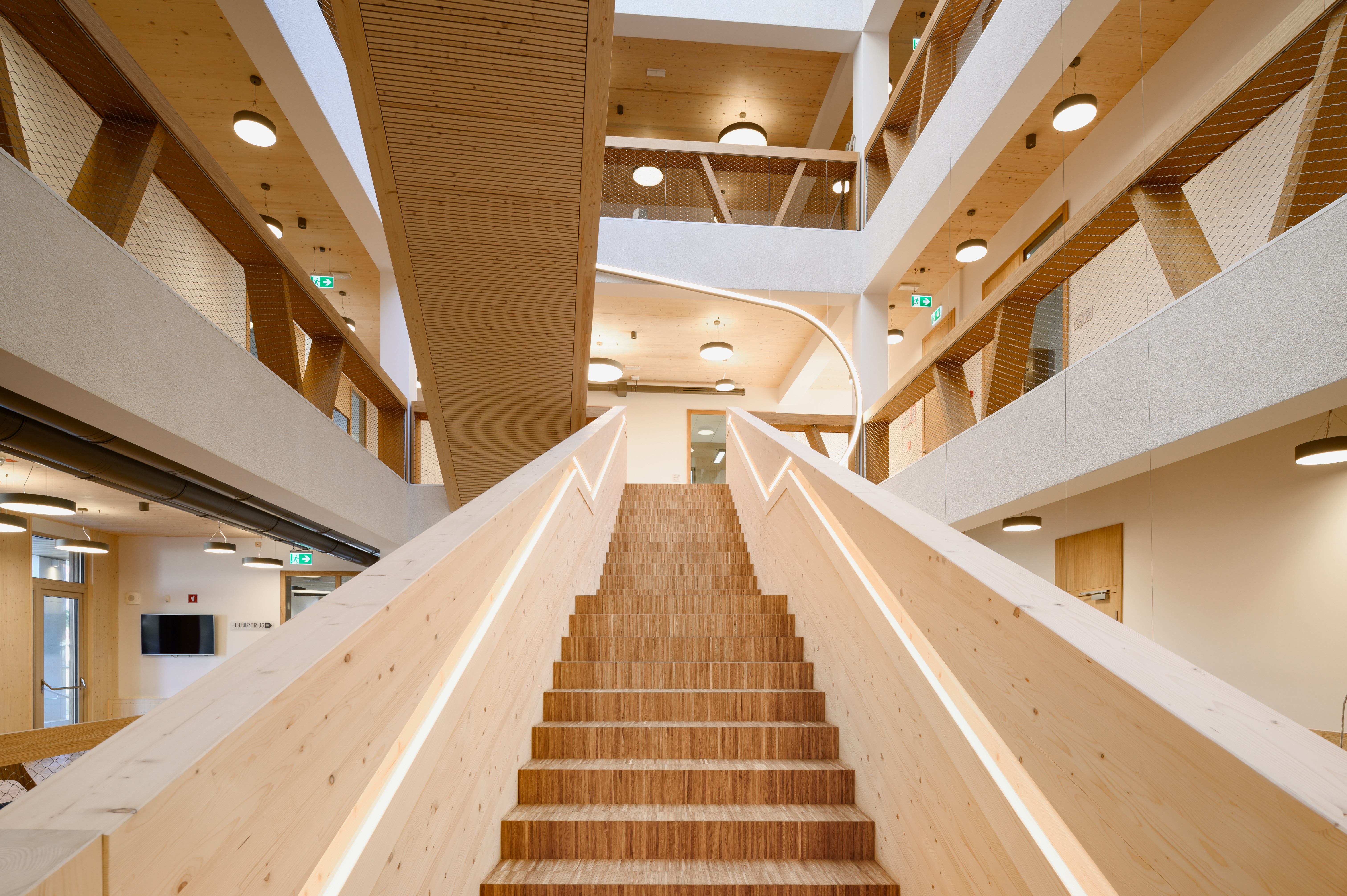
- PROJECT CODE: V4-2124
- PROJECT TITLE: Economic, environmental and social aspects of wood processing and its use and carbon sequestration
- PROJECT LEADER: Balázs Dávid, PhD
- PROJECT TEAM: David Balazs, PhD (leader), David B. DeVallance, Andreja Kutnar, Črtomir Tavzes, Jaka Pečnik, Erwin M. Schau, Niki Hrovatin
- PERIOD: 01.09.2021 – 31.05.2023
- BUDGET: €90,000.00 (€52,000.00 for InnoRenew CoE)
- FINANCING: Slovenian Research Agency (ARRS)
- COORDINATOR: InnoRenew CoE (Slovenia)
- PARTNERS: Slovenian Forestry Institute (Slovenia); Pulp and Paper Institute (Slovenia)
Wood from sustainably managed forests is a renewable source of material and energy that stores carbon over its lifetime while consuming significantly fewer fossil resources in its extraction and processing than other materials. Slovenia is a leader in softwood industrial timber production and a strong net exporter of unprocessed roundwood. The processing chains are not optimized, and there are opportunities to improve Slovenia’s position in several areas, with concomitant loss of full information on economic, environmental and social performance. In this project, researchers will upgrade the system and develop a model that will allow multi-criteria optimization of timber volumes for processing across the entire forestry, wood and paper sector for a long-term policy that is coordinated with the widest range of stakeholders. The model will be based on development needs, businesses and investment plans of various stakeholders, with a holistic evaluation of different scenarios for the development of wood extraction, processing and use in Slovenia.
InnoRenew CoE project activities
InnoRenew CoE will prepare a report outlining the results of a life cycle assessment on wood products compared to non-wood products, a simulation model for wood redistribution in the wood processing industry and a description of optimal wood utilization scenarios with environmental impacts. Further, researchers will prepare results of the optimized wood redistribution model in the wood processing industry.



